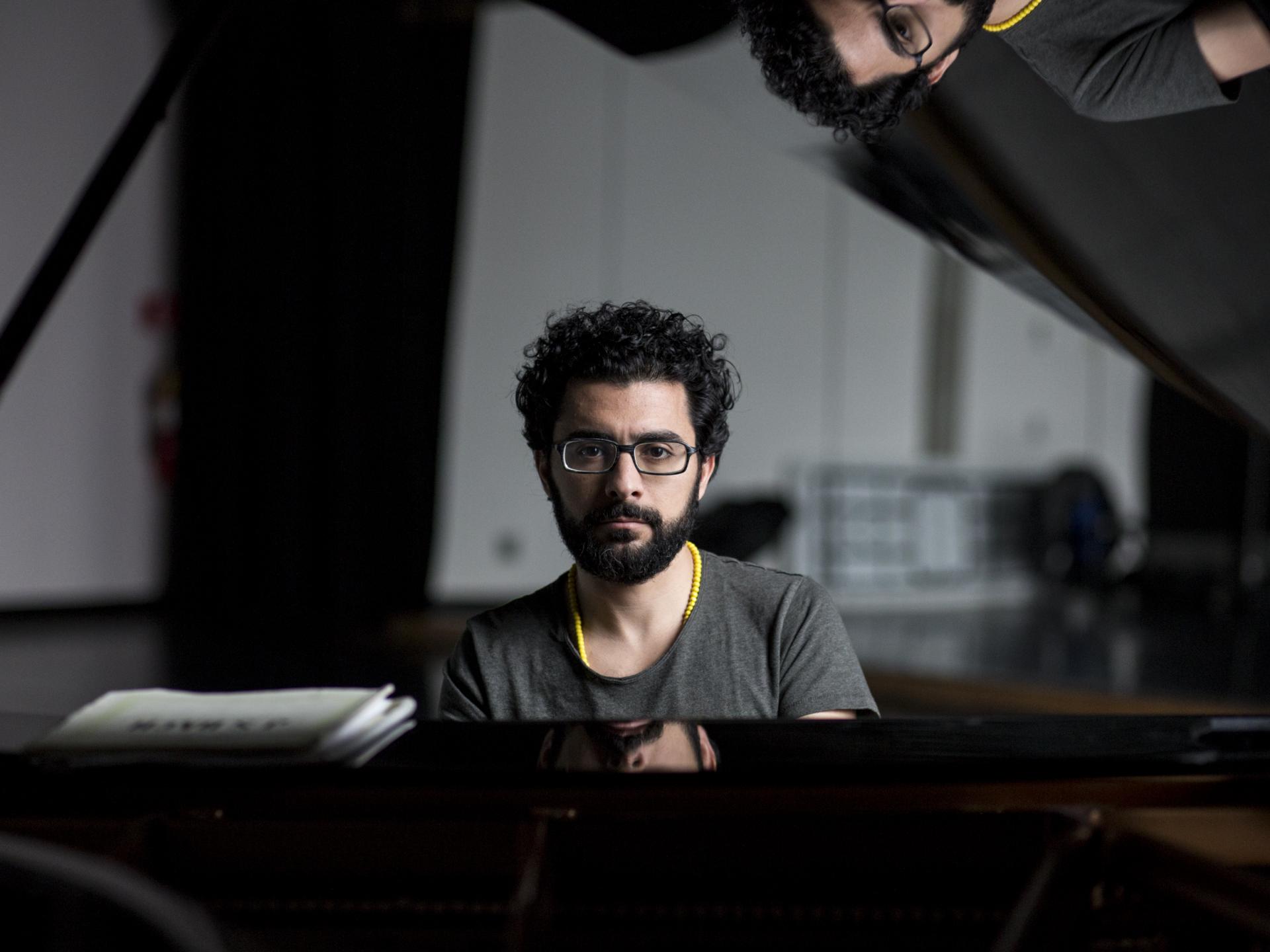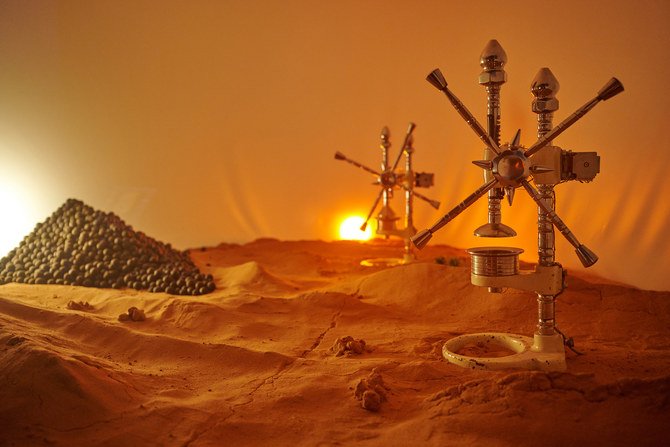Lifestyle
7.22.2021
Tarek Yamini, for the love of jazz

Lebanese jazz pianist Tarek Yamani recently released his latest song “King Matar”, a tribute to Lebanese buzuq player and virtuoso Matar Muhammad. An opportunity to look back at the journey of this self-taught musician and his passion for jazz
After discovering the piano at a very young age through classical music, Tarek Yamani quickly turned to jazz, which he learned on his own. In 2012, he released “Ashur”, a first hybrid album that reinvents Arab classical music with the spark of jazz music. A style that he himself called Afro Tarab, in reference to African-American music and the emotion of ecstasy and communion between the viewer and performer resulting from Arabic music tune. Since then, he has received numerous awards and grants and even composed for short films. His latest EP, King Matar”, is a reminder of the musician’s respect for the famous Arab jazz icon of the 70s Matar Muhammad.
Why did you switch from learning classical music to jazz around 19?
I didn’t like the classical system even as a child. In Lebanon at that time the system was very rigid, and if you made a mistake the teachers would beat you with a stick (laughters).I later discovered that and I had a natural sense of doing the things the way I felt and not like it was writing on a music sheet. I liked the idea of improvisation. When I became a teenager, I was drawn to heavy metal and rock music so I learned the guitar by myself and I became this metal head playing electric guitar and doing solos. But later on, I got bored and when I discovered jazz, I realized that this was everything that I was looking for.
What were your musical references at that time?
I was listening to Herbie Hancock’s album called “ The new standard”. I remember that as in an old music shop called “Melody” in Beirut and while I was going around the jazz section, the guy from the cashier put this album on with the sound really loud. I thought that it was exactly what I wanted. But because there was no really jazz class in Lebanon, I decided to learn on my own while trying to imitate by ear what I was listening to. It actually changed my life because Jazz made me want to play piano again, after I left it a long time ago.
Today, you perform a music that you call Afro-Tarab. Can you explain what it is and how you got there?
I named this music this way because I didn’t want people to labellise it in a way I wouldn’t like. Afro Tarab is like an africanization of tarab which is the arabic classical music: some traditional arabic music with an african DNA into it. When you go really deep in a new language, to a point you speak it fluently, your accent is naturally gonna be there but it is just a flavor coming from your own dialect and the result represents what afro tarab is for music in a way. That is what I tried to experiment with my second album Lisan Al Tarab: Jazz Conceptions in Classical Arabic”. Melodies are arabic but the interplay between musicians and harmonies come from the jazz world.
In 2015, you release “Peninsular”, an album inspired by the rhythms from the Arabic peninsula. How did you work on the research process?
It is an idea that I was thinking about for a while with my percussionist, but the opportunity came when the Abu Dhabi music and art foundation approached us to make a new album. I thought it was the right time to do it, so I moved to Dubai and I started researching. I thought I was not going to find much but it was mind blowing to discover all this heritage. I ended up getting into old school local forums from Bahrain, Oman, Saudi Arabia where people would share music and MP3s……I also found a book from an american scholar about music and tradition from the arabian peninsula. It was very helpful because there was nothing to compare to, no existing references and it was difficult to find the name of the instruments. So I chose 10 rhythms from the region that I put in my sound software and started jamming with them and adding baseline and melodies.
What does Khaleeji music in particular?
The khaleeji music is very special mainly because of its rhythms. In the Gulf countries, the nature of the music is really polyrhythmic which isn’t the case in Levantine music that is following more of a tarab style of music with a binary type of rhythmic. The Arabian peninsula has a thousands years old history of slavery and a lot of african descendants, an element that played a big part in the instruments they use and the rythms, even though the influence of India and Iran which also have a long tradition of rhythms played also a role.
What are your next projects?
I am writing for a string quartered based in Chicago Spektral quartered, a composition exercise which is kind of new for me. Hopefully this is gonna premiere in fall 2021.
See also
undefinedpopular

